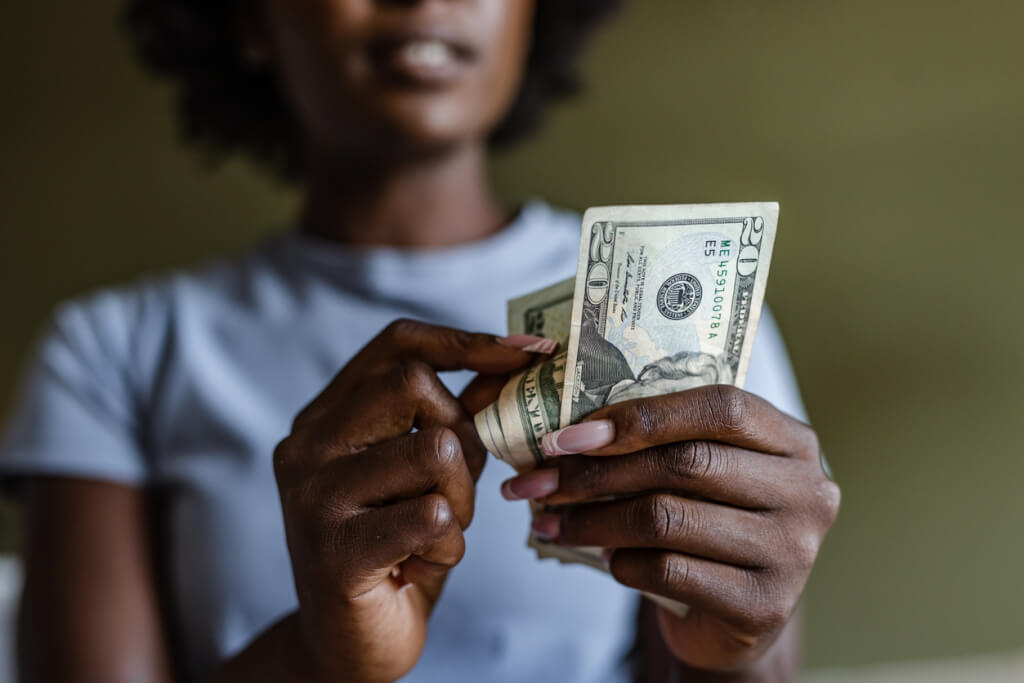Coronavirus: 5 people under surveillance in New York, the death toll in the world has increased
'28.01.2020'
Source: ny1.com
Five people in New York were tested for possible coronavirus infection. The information was confirmed on January 27 at the office of state governor Andrew Cuomo. About the number of infected and killed by a deadly virus in the world, as well as how to protect themselves, writes the publication Spectrum.

New York infection risk
Five people in New York were isolated and monitored while tests were conducted at the Center for Disease Control and Prevention (CDC) to refute or confirm the presence of the virus. Four other New Yorkers tested were thought to have not been in contact with the virus, state health officials said. As of Monday, January 27, officials in New York did not confirm a single case of coronavirus infection in this state, the newspaper writes.
Officials say the risk of infection in New York is low. At the same time, they are calling for caution over the flu-like virus that has killed 81 people in China and infected 2750.
With New York City home to China's largest population outside of China, and as travel increases ahead of the Chinese New Year celebrations, officials are urging New Yorkers to be extra careful. “We ask New Yorkers who have flown to Wuhan in the past 14 days and have symptoms of fever, cough, or shortness of breath to contact their healthcare professional and share this information,” Dr. Oxiris Barbot, Commissioner for New York City health issues.
Spread of the disease

In the world. The death toll rose on Monday, January 27, when the southern island of Hainan in the South China Sea reported the first death of an 80-year-old woman whose family arrived from Wuhan on January 17.
Hubei Province, where Wuhan is located, accounts for 76 previously reported deaths. One each in Shanghai and Hebei provinces in the north, Heilongjiang in the northeast and Henan in central China.
The spread of the disease is monitored worldwide, and a small number of cases appear in other countries. South Korea confirmed the fourth case on January 27. Cases have been confirmed in Thailand, Taiwan, Japan, the United States, Vietnam, Singapore, Malaysia, Nepal, France, Canada and Australia.
China reported eight cases in Hong Kong and five in Macau. Dr Chuang Shuk-kwan, head of the Hong Kong division of infectious diseases, said that all eight cases in the city have links to Hubei, so there is no sign so far that the disease is spreading to the general population of Hong Kong.
Mongolia is the second country to close the border with China, after North Korea. None of the countries reported any cases of the virus. Mongolia also closed its schools, universities and playgrounds for more than a month - until March 2.
IN USA. There have previously been five confirmed cases of the Chinese virus in America. On January 26, two new cases were reported: one in Los Angeles County, California, and the other in Maricopa County, Arizona. Arizona Department of Health officials said the patient was not seriously ill and was in isolation at home to keep the disease from spreading. The department also said it would not release potentially identifying information about a person, including gender and age, and declined to say if the person is a student or teacher.
The Los Angeles patient, upon arrival at the international airport, warned the authorities that he was not feeling well. He was taken by ambulance to the hospital. “Everything worked as it should,” said Dr. Sharon Balter of the Los Angeles County Health Department. "The patient was immediately taken to the hospital and remained in the hospital." Officials did not provide details about the patient, except that he was a traveler from Wuhan, China.
The three previously reported cases concerned a patient in Orange County, California, men over 30 in Washington State and women over 60 from Chicago.
As a rule, American patients were in satisfactory condition and were hospitalized for further observation.
It is expected that many Americans will be diagnosed with a newly discovered virus, whose incubation period is thought to be about two weeks, as the number of confirmed cases worldwide is approaching 2000. The CDC is screening passengers on direct and connecting flights from Wuhan in five major airports in Atlanta, Chicago, New York, San Francisco and Los Angeles.
CDC officials said on January 26 that the test results of more than 20 people who might have been infected with the deadly virus were negative.
On the subject: 10 tips on not getting infected with Chinese coronavirus or flu on a plane
The CDC Guide notes that people who accidentally come into contact with a virus carrier are at "minimal risk" of developing an infection.
Prime Minister Li Keqiang visited Wuhan to "lead the epidemic prevention efforts," the cabinet website said. The pictures show Lee, wearing a blue robe and green mask, meeting with hospital staff.
Later, a prime minister in a mask and a dark windbreaker visited a supermarket. Customers, also wearing masks, greeted him: "Happy New Year."
In another place on Monday, January 27, the Potala Palace in Tibet's capital Lhasa was closed for tourists for an indefinite period. The former imperial palace in Beijing closed on Friday until further notice. Other major tourist sites have also closed down, including Hong Kong’s two most popular attractions, Hong Kong Disneyland and Ocean Park.
How countries prevent an epidemic
China on Monday expanded its massive efforts to contain the deadly virus. The country has extended the Lunar New Year holiday to keep the audience at home and to prevent the spread of infection, as the death toll has increased to 81. The end of the Lunar New Year holiday, the most busy tourist season in China, has been postponed from Thursday to Sunday to “reduce public gatherings” and “ block the spread of the epidemic, ”the cabinet said in a statement.
Mongolia closed its vast border with China. Hong Kong and Malaysia have announced that they will ban visitors from the Chinese province after warning medical personnel that the virus's ability to spread is growing. Travel agencies were ordered to cancel group tours across the country, which exacerbated growing economic losses.
On January 27, stock markets around the world plummeted as blocking in Chinese cities was expected to hold back travel, shopping, and the business of millions of people. Markets in many countries in Asia, including China, were closed for Chinese New Year. China’s increasingly radical containment efforts began with the suspension on January 22 of airplane, rail and bus links to Wuhan. Recall that it was in this city with a population of 11 million people in central China that the virus was first detected last month. This blockage has spread to 17 cities with more than 50 million people in the most far-reaching disease control measures ever applied.
The government of Shanghai, a metropolis of 25 million and a global business hub, has extended the holiday until February 9. It ordered the closure of sports stadiums and canceled religious events.
Tens of millions of people in China and Asia lined up for planes, trains and buses to return to work after visiting their hometowns or tourist attractions for the holiday. Schools postpone reopening until further notice.
How it will affect business and economy

Industrial disruption and consumer spending threaten to stifle China’s economic growth, which Beijing is trying to maintain after dropping to multi-year lows of 6,1 percent last year. This could trigger shock waves in other Asian countries that rely on China as a source of tourists and export markets.
Chinese regulators on January 27 called on banks and insurance companies to support the people and companies affected by the outbreak. This will have the greatest impact on travel, hotels and restaurants, but Chinese retail, manufacturing and investment will also suffer if the outbreak and quarantine last, the source said.
The outbreak “could potentially be a high impact but short-lived event,” Tommy Wu and Priyanka Kishore of Oxford Economics said in a report. They pointed to the example of the 2002-2003 SARS outbreak, when economic activity fell but recovered relatively quickly. “The impact should be 'less severe' than SARS because of the faster official response and 'more transparency,'” they said.
Overseas economies, including Hong Kong, Thailand, Vietnam, Singapore, and the Philippines, with large tourism industries that rely on Chinese travelers, can be hit harder than others, said Wu and Kishor.
The U.S. Consulate in Wuhan said it will organize the evacuation of its diplomats and some US citizens on January 28. The French government said it would deliver its citizens from Wuhan to France and quarantine them there. Japan is also preparing to take out its citizens from Wuhan.
French carmaker PSA Peugeot Citroen, which has a factory in Wuhan, is transporting foreign workers and their families on a bus to quarantine in another city.
German Foreign Minister Heiko Maas said his government is considering evacuating about 90 of its citizens from Wuhan.
The National Health Commission said that by midnight on Sunday, January 26, 2744 cases had been confirmed in mainland China. The youngest patient is a 9 month old girl in Beijing.
Chinese Minister of Health Ma Xiaowei said the country is entering a “decisive phase,” as “it seems that the virus’s ability to spread is increasing.”
Chinese President Xi Jinping called the outbreak a serious situation and said that the government is lifting restrictions on travel and public gatherings, while at the same time rushing to supply medical personnel and supplies to Wuhan.
The epidemic has revived memories of the outbreak of SARS, which originated in China and claimed the lives of almost 800 people. Then the Chinese authorities were criticized for the slow reaction and non-disclosure of information. The government has reacted more aggressively to the latest outbreak of SARS.
The National Health Commission said everyone traveling from Wuhan must register at community health posts and quarantine at home for 14 days, the maximum incubation period for the virus.
Hong Kong has announced that it will ban travelers from Hubei from January 27. Hong Kong residents returning from this area will be allowed to enter the territory, but they will need to be quarantined at home.
Also on January 26, Wuhan banned most vehicles, including private cars, from running in the city center. Wuhan is building two hospitals for the growing number of patients, one with 1500 beds and one with 1000 beds. The first is scheduled to be completed next week.
Symptoms of the virus

The virus belongs to the coronavirus family, which includes the common cold but also more serious illnesses such as SARS and Middle East respiratory syndrome. The new virus causes colds and flu-like symptoms, including cough and fever, and in more severe cases, shortness of breath and pneumonia.
It is believed that the virus has spread to people from wildlife sold in a market in Wuhan. On Sunday, January 26, authorities banned the trade in wild animals and urged people to stop eating meat from them.
Symptoms of the virus include: runny nose, headache, cough, sore throat, fever. The virus can also cause wheezing and pneumonia. It is a member of the coronavirus family, a close relative of the deadly viruses SARS and MERS, which in the past caused outbreaks of disease.
How to protect yourself: CDC recommendations
For all: the flu and respiratory season is in full swing. To stop the spread of germs, the CDC recommends getting vaccinated, taking daily preventative measures and, if necessary, taking antiviral drugs for the flu.
For medical professionals:
Be mindful of people with a history of traveling to Wuhan, China, with fever and respiratory symptoms.
If you are a healthcare professional caring for a patient with coronavirus, take care of yourself and follow the guidelines for infection control.







